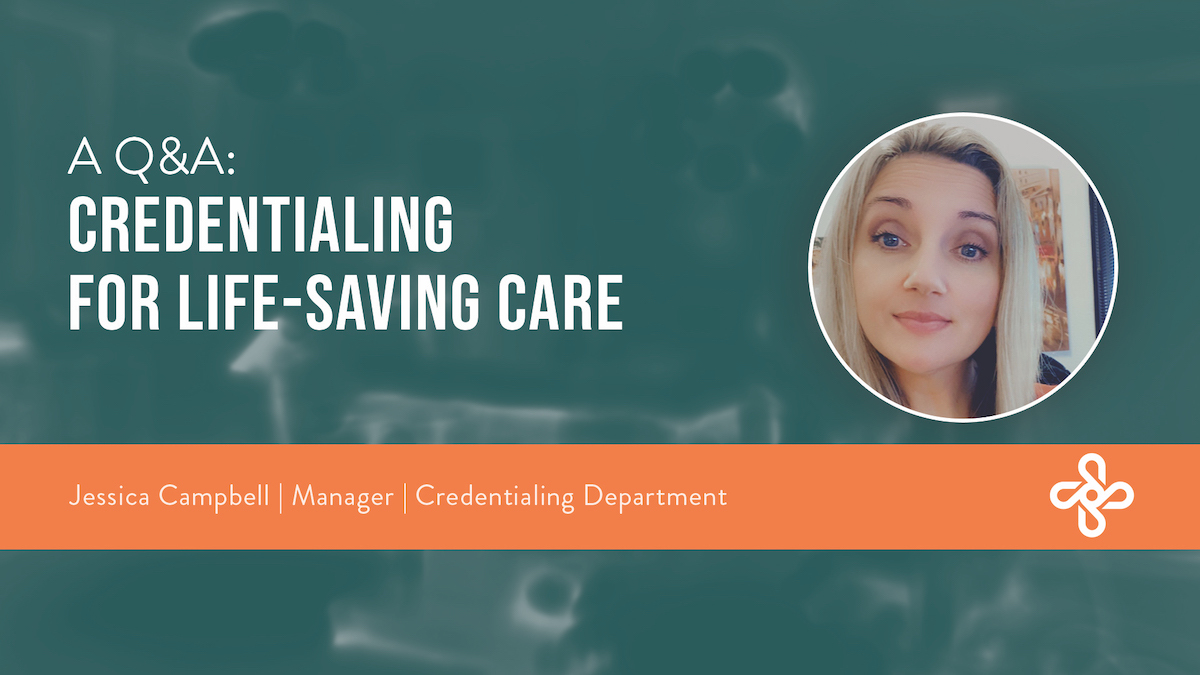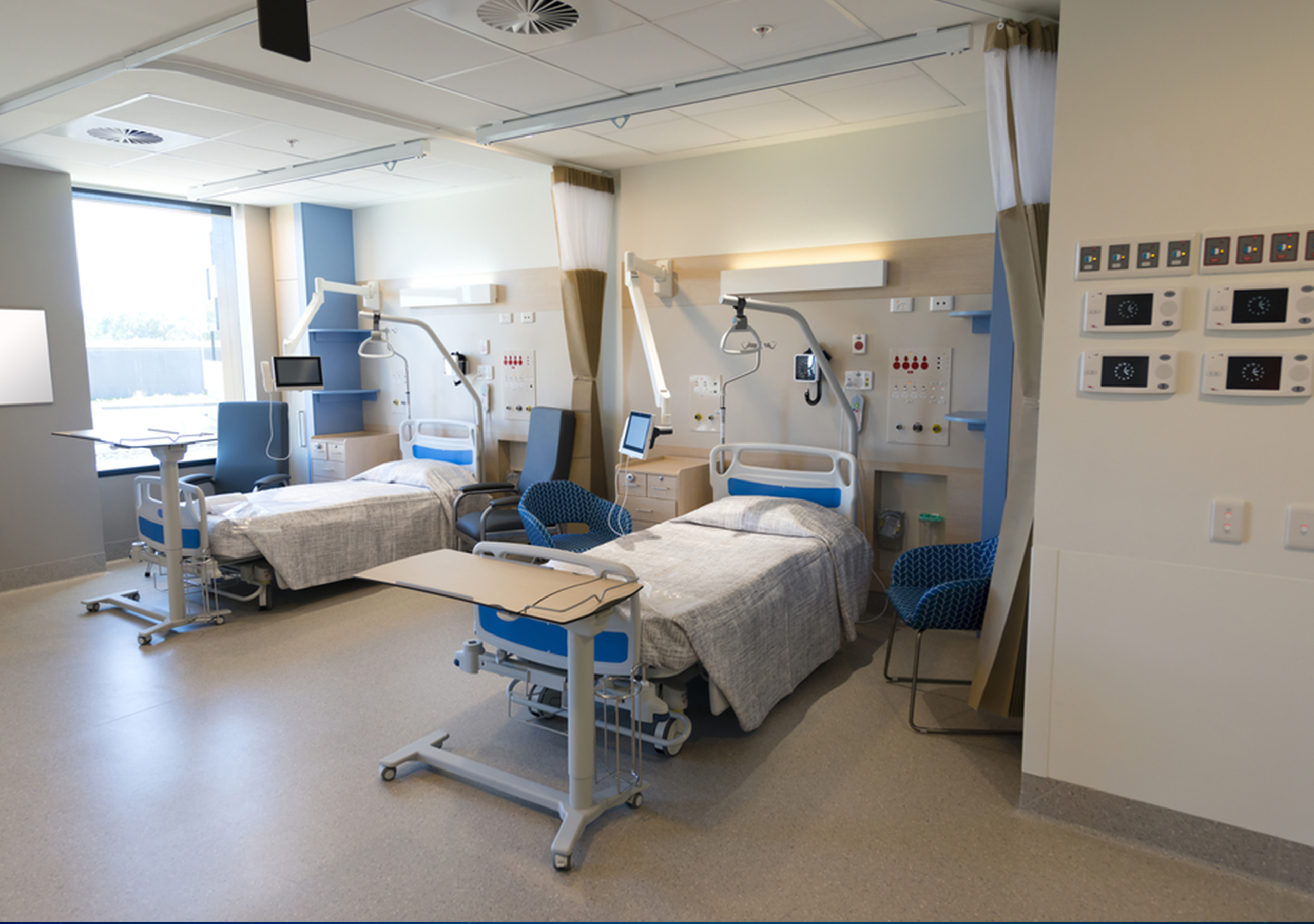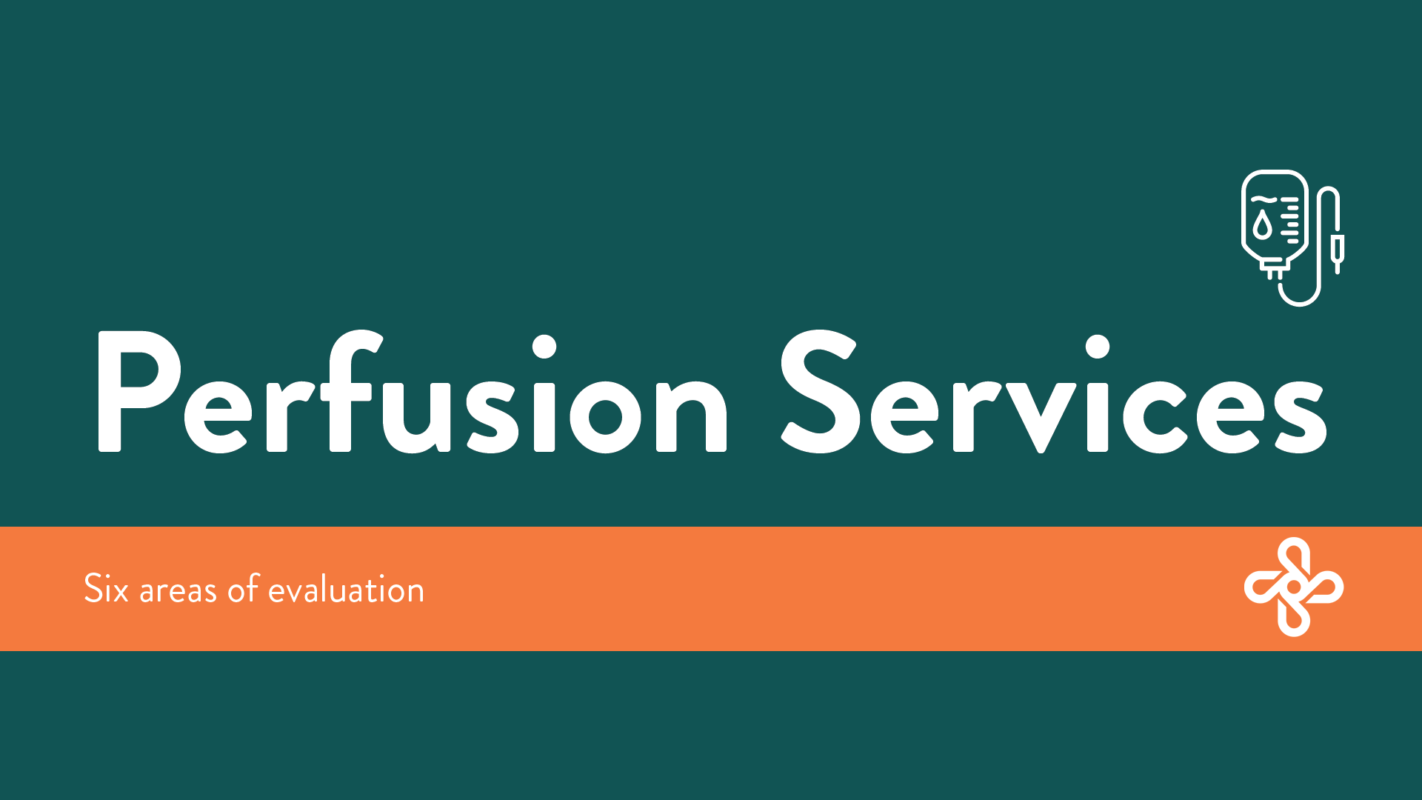
We sat down with Jessica Campbell, SpecialtyCare’s Manager of the Credentialing Department to learn about the critical role they play in supporting SpecialtyCare’s clinicians and the hospitals we partner with, what adjustments have been made during this time, and how they are planning for the months ahead.
What role does the credentialing department play at SpecialtyCare? What extra steps are taken to ensure our clinicians are compliant and equipped to enter a hospital?
The credentialing department plays an essential role because we are the gatekeepers to get our clinicians and physicians access to the hospitals in order to provide care for our patients in a timely fashion. It is the credentialing department’s job to make sure our clinical employees meet Joint Commission standards as well as our own internal standards including educational and board certification.
Joint Commission is looking for our overall compliance to be at 90% so we have to be compliant when we collect documents when we hire a new employee, as well as the maintenance of these documents. Ongoing tracking of immunizations, CPR, performance evaluations, clinical competencies, etc, are all part of this process and are included in the requirements. Our job is to make sure we meet our clients’ needs and requirements with top-notch staff to provide clinical services on behalf of SpecialtyCare.
COVID-19 has undoubtedly brought about some challenges for all departments, what adjustments or pivots have been made to support our clinicians and the hospitals we work with?
The credentialing team has had to adjust to the changing demands from the hospitals we service. Most hospitals have had major changes in their priorities and we have to work with them and support them as much as possible in their challenges while simultaneously working to get our clinicians cleared as quickly as possible.
What is the average time it takes to get someone credentialed at a hospital from the first touch to sign off? Does the process vary across service lines or clinical roles?
Yes, it varies. Average time for a Remote Neuromonitoring Physician is 90-120 days unless we can have a hospital utilize our Joint Commission Accreditation for a Credentialing Via Proxy agreement and then it averages 30-60 days. Most of our clinicians are approved through a vendor system (various ones) which are chosen by the hospital and those can take 24 hours to several weeks depends on the system used. We also do full credentialing for clinicians at times and those average about 60 days. The credentialing process varies across service lines primarily because their job duties vary significantly but even deeper than that because all credentialing varies by each facility. It digs down even deeper for physicians. Our daily job is based on hospital requirements and making sure they have what they need to clear our clinicians and doctors.
What can clinicians do to help credentialing be more efficient and/or effective? Are any updates coming to our current software system?
If clinicians can keep up with the compliance items and make sure their vendor accounts are up to date this helps us out a great deal. The majority of the items that take the greatest amount of time away from our daily tasks are emergencies because someone didn’t keep up their vendor account or they forgot their TB or CPR was expiring.
Our current credentialing software sends out reminders and we can do referrals to send the clinician’s to our occupational health company so they don’t even have to pay out of pocket we just need them to reach out so we can help them. Checking their email for reminders and checking their vendor accounts to make sure they have the green light and can get into cases is extremely important.
Later this summer, we are moving into an updated credentialing system and we are very excited about the opportunities it will provide managers and clinicians to have some self-service options and not have to wait for answers regarding who is credentialed where.
What do you love about your role and how fits into the incredibly impactful mission and vision of SpecialtyCare?
I love that I get to contribute to the care of patients that need us. We get to make sure that each patient has a competent and adequately trained physician or clinician ready to care for them in a time of need. Personally, I am not cut-out to do hands-on healthcare, (blood and I are not a good mix) but I get to contribute in my own way along with my team to credential our providers. Once I began my career in credentialing I realized as a patient, mother, daughter, etc. how reassuring it is to know someone is doing this job and that a checks and balances system exists to ensure someone caring for you or your family member are properly trained and competent to provide potentially life-saving care.



Comments are closed.